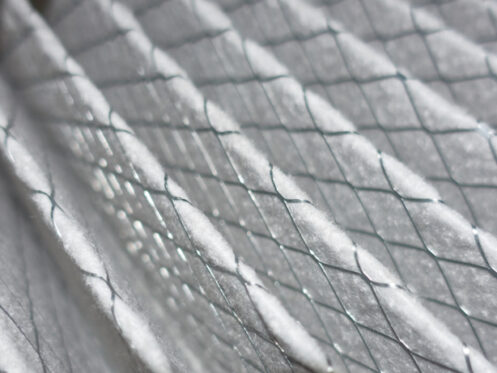How often should you change your HVAC filter? As local AC and heating pros, we receive this question often from homeowners looking to keep up with this essential HVAC maintenance task. In this guide, we’ll explain what your air filters actually do, the factors that affect how often they need to be changed, and the top signs that it’s time to swap out the filter. Let’s take a look.
Purpose of Air Filters
Your HVAC system draws outside air to heat or cool your home and circulates it throughout. Without a filter, dust, pollen, and other particles could enter the system and spread indoors, potentially causing respiratory issues. The air filter solves this by trapping contaminants before they reach your unit.
Factors Influencing Filter Replacement Frequency
How often to change the air filter in your house depends on a few key factors, such as:
Filter type
Not all HVAC filters are created equal. There are several varieties of filters, each of which has a different lifespan. The main types of filters you’re likely to encounter are:
- Fiberglass: This is the most common type of air filter. They usually need to be replaced every 30 days.
- Pleated: These filters are higher quality than fiberglass, typically lasting 60 to 90 days.
- Electrostatic: These filters last about the same as pleated ones (around 90 days), but they’re designed to catch a broader range of particulates.
- HEPA: These are the most comprehensive filters available, catching a wide array of tiny particles and other contaminants. HEPA filters last much longer, usually around 6 months.
Usage
Naturally, the more often you run an HVAC system, the more particulates will get trapped in your air filter. If you live in a hot climate and need to run AC near-constantly in summer, for instance, you’ll need to replace the filter much more often than someone living in a more temperate environment that doesn’t run their system as much.
Allergies and respiratory conditions
Air filters help to improve indoor air quality (IAQ), making life easier and more comfortable for those with allergies to dust and pollen, as well as for people with asthma and other breathing challenges. If you have people facing these challenges in your home, it’s recommended that you change air filters more regularly.
Environmental factors
Certain areas face higher levels of outdoor pollutants. If you live in a city that often has high pollution, large amounts of dust, or smoke from wildfires (as is increasingly the case here in Denver), you’ll probably need to change your filters a lot more often to ensure safe indoor air quality.
Number of occupants
Air filters don’t just catch contaminants from outside — they can also be impacted by pollution inside your home. And since more people equal more dust and dander, you can expect a household with multiple occupants to need more frequent filter replacements.
Pets
As with having a higher number of people in the home, having pets tends to shorten the lifespan of your air filters. This is because the dust, dander, and hair that cats and dogs put out into the air clog filters more quickly.
Signs That Your Filter Needs Changing
Changing an air filter is one of the simplest HVAC maintenance tasks you can do. Here are a few signs that it’s time to handle this quick and easy project:
- Visible dirt and debris on the filter.
- Rising energy bills (due to reduced efficiency from poor airflow).
- Weak airflow from HVAC ducts.
- Stale or musty odors from HVAC vents.
- Excessive dust on vent covers and throughout the home.
Benefits of Regular Filter Changes
Now that we know how often to change your AC filter, let’s dive further into the ‘why.’ There are several great benefits of regular filter changes.
Improved cooling/heating performance
When your air filter is clean and debris-free, air can freely pass through and into your system, allowing it to heat or cool the air more effectively. This means your system will run better, changing the temperature of the home more quickly and evenly.
Extended system lifespan
Letting an HVAC system run with a dirty air filter puts excess strain on the other components. Over time, this increases the odds of damage to the unit, shortening its lifespan and forcing you to pay for either costly repairs or a total replacement.
Reduced energy bills
Because a dirty air filter affects system efficiency, you’ll pay less in monthly utility bills when you keep up with regular air filter changes.
Improved IAQ
Changing your air filter lets you breathe easily in your home again, improving indoor air quality and reducing the severity of allergy symptoms and other respiratory challenges.
DIY Air Filter Replacement
Changing an air filter is one of the most DIY-friendly HVAC tasks. Typically, the filter is easily accessible and can be swapped in just a few moments. Here’s how to do it:
- Step one: Turn off the HVAC system to make sure nothing is circulating through your system during the filter change.
- Step two: Locate your filter, typically found on the return air duct or the air handler unit.
- Step three: Remove the old filter, taking note of the direction of the airflow (indicated by arrows on the filter).
- Step four: Install the new filter, lining up the arrows as you did with the old filter.
- Step five: Restart your HVAC system, make sure it’s running normally, and dispose of your old filter!
Contact the Professionals at High 5 to Optimize Your Home’s HVAC Efficiency
Ready to get your HVAC system running at its very best again? We’re here to help. Our HVAC technicians are skilled, experienced, and professional, and can diagnose everything from the most severe issues down to the most minor annoyances. From filter changes to furnace repairs, we do it all! Contact our team to schedule your first HVAC service appointment.

